Oatmeal On A Renal Diet
You've wondered, 'Is oatmeal good for renal patients?' Let's explore this together.
We'll dive into the benefits of oats, consider dietary guidelines, and unravel the mystery of phosphorus and potassium in oatmeal.
You'll be well-equipped to make informed decisions about including oatmeal in a renal diet.
Let's get started in talking about oatmeal on a renal diet and people with kidney disease.
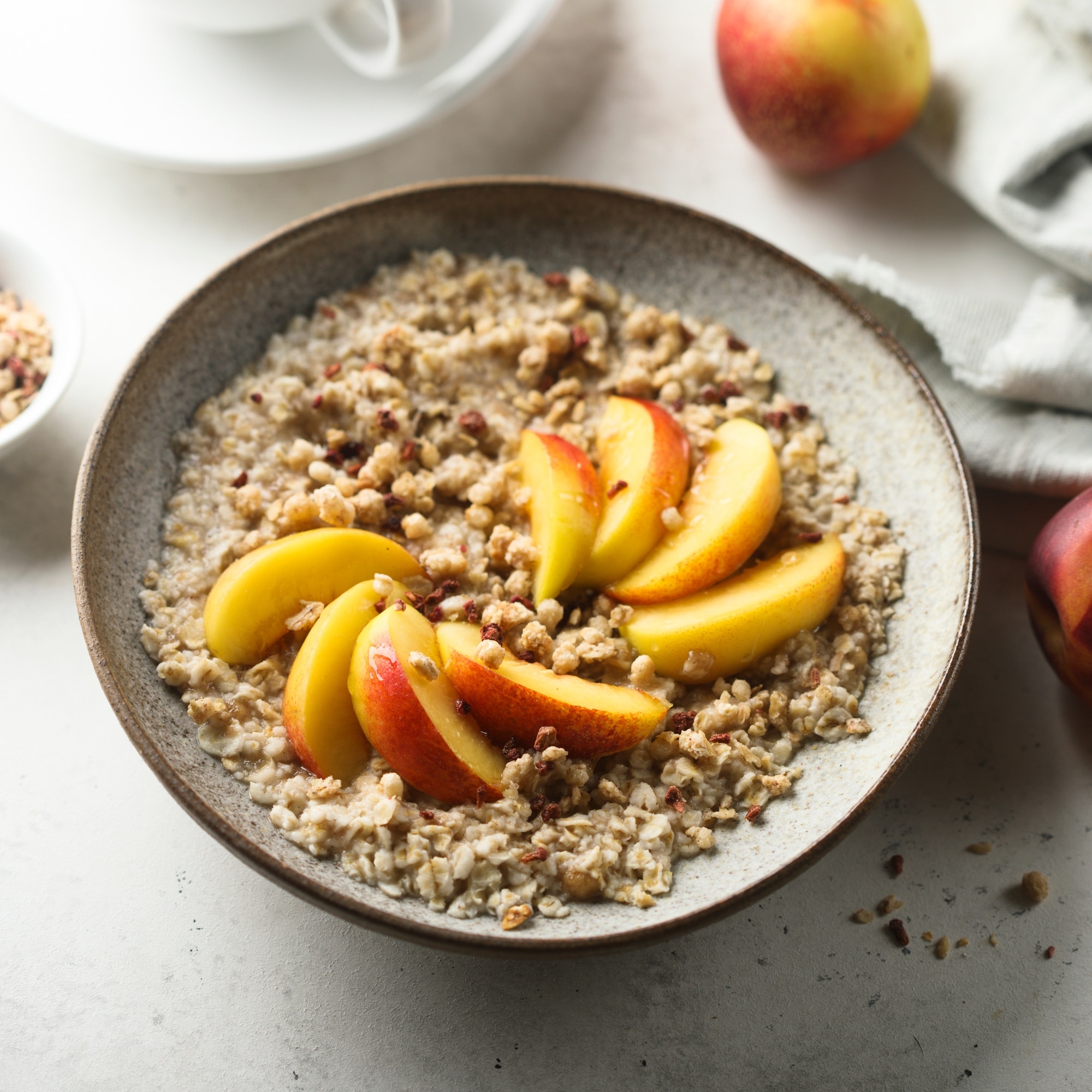
Jump to:
- Key Takeaways
- Understanding the Role of Oats in Kidney Disease
- Exploring the Different Types of Oats
- Health Benefits of Oats for Renal Patients
- How Oatmeal Fits Into a Renal Diet
- Unpacking the Phosphorus Content in Oatmeal
- Examining the Potassium Content in Oatmeal
- Guidelines for Oatmeal Consumption in Kidney Disease
- Oatmeal Alternatives for Individuals With Chronic Kidney Disease
- Frequently Asked Questions
- Eating Oatmeal On A Renal Diet
Key Takeaways
- Oats are beneficial for kidney health due to their high fiber, protein, and nutrient content.
- Choosing kidney-friendly oats involves selecting low sodium and phosphorus options and avoiding instant oatmeal with added salt and sugars.
- There are different types of oats available, including oat groats, steel-cut oats, rolled oats, and quick-cooking oats, which offer versatility in preparation and conservation.
- Oats can have significant health benefits for renal patients, such as helping regulate blood sugar levels and aiding in weight loss. It is important to consider any oat allergies and personalize the oatmeal recipes to suit individual needs.
For More Recipes and Ideas --->> Get Your Free Meals and Recipes That Are Perfect for Pre-Dialysis Diets, Pre-Dialysis with Diabetes, or Dialysis Diets.
Understanding the Role of Oats in Kidney Disease
You've likely heard about the health benefits of oats, but have you ever considered their nutritional impact on kidney health?
It's important to understand how the right kind of oats can be a great addition to a kidney-friendly diet.
In this discussion, we'll delve into the specifics of why and how to choose oats that are beneficial for your kidneys.
Oats' Nutritional Impact
It's important to understand that oats are packed with essential nutrients like fiber, protein, and various vitamins beneficial for your kidney health. Key points about oats include:
- Oats' Fiber Content: High in soluble fiber which aids digestion and helps maintain bowel regularity.
- Antioxidant Properties: Contains avenanthramides that combat inflammation and itching.
- Oatmeal's Glycemic Index: Low GI means slow sugar release into bloodstream, preventing sudden spikes in blood glucose levels.
- Heart Health Benefits: Beta-glucan reduces LDL cholesterol, promoting heart health.
- Oats' Protein Content: A substantial source of plant-based protein.
Remember these aspects when recommending oatmeal; it's more than just breakfast, it's a step towards better kidney health and a healthy diet. Not to mention, you have to get enough fiber per day and oatmeal can help with that. Cooked greens is a good way to get nutrition, but so are additional servings of oatmeal.
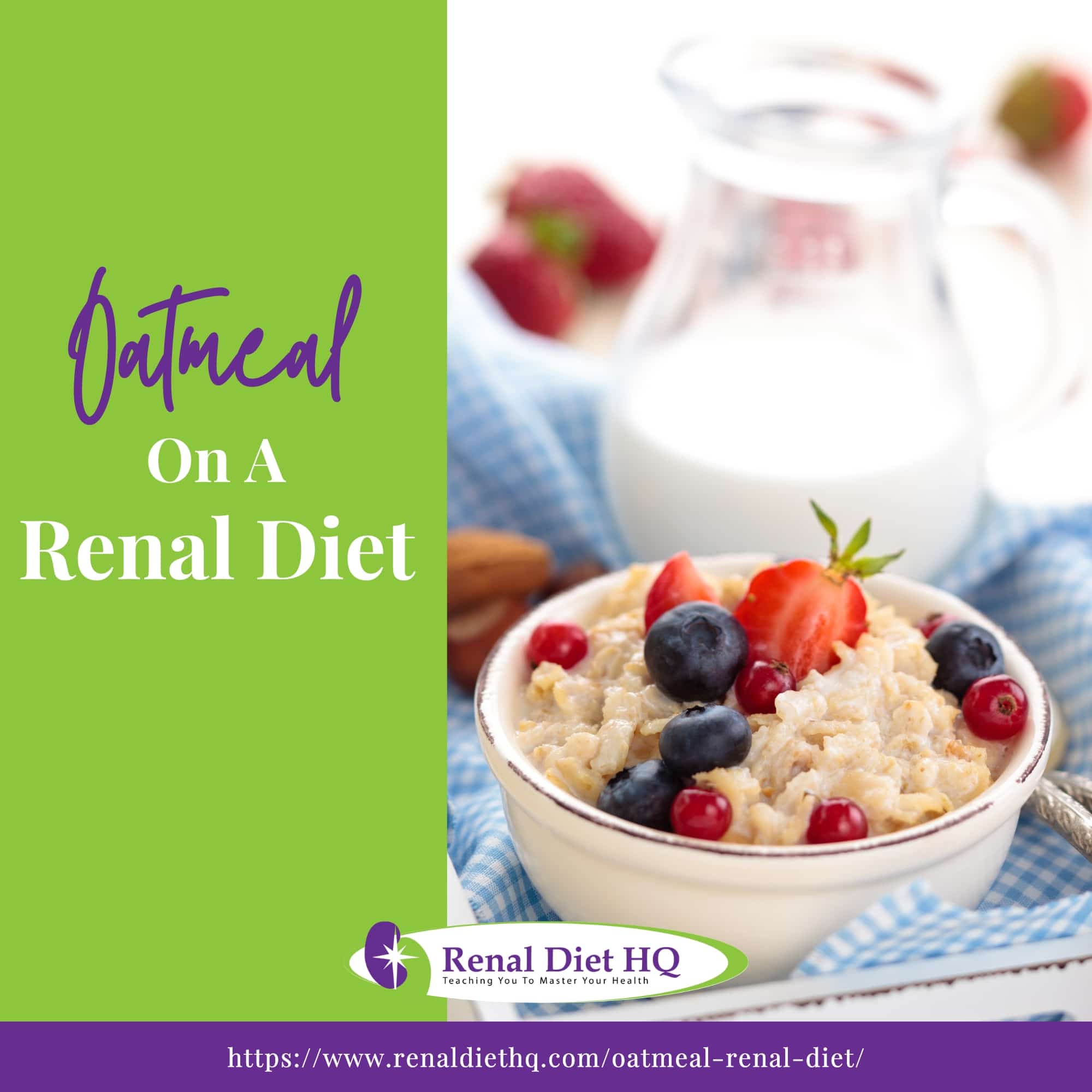
Choosing Kidney-Friendly Oats
Choosing kidney-friendly oats is not just about picking any type, but rather selecting ones that are low in sodium and phosphorus. You're making a difference for those with renal concerns, so consider oatmeal allergies too. Oats have a high fiber content which can aid digestion, but ensure they don't trigger allergic reactions.
The instant oatmeal debate might give you pause, it's convenient but may contain added salt and sugars. Instead, choose traditional methods of oatmeal preparation for healthier outcomes. Opting to cook your oats from scratch gives you control over what goes into the pot.
When serving up this wholesome dish, remember kidney-friendly toppings are key! Consider apple slices or cinnamon spice to jazz things up without compromising on health benefits. You're not only feeding bodies here, you're nourishing souls too.
Exploring the Different Types of Oats
Exploring the various types of processing and which ones could be the healthiest choice if you're managing Chronic Kidney Disease (CKD).
You'll get to understand why not all oats are created equal when it comes to your health.
Processing Levels in Oats
Understanding the different processing levels in oats is essential for your renal diet, as they can drastically alter the nutritional content. From oatmeal digestion to oatmeal allergies, each process level impacts these factors differently. Yet, don't worry, with a few tips and tricks, you'll master it all.
Here are some key points to remember:
- Oat groats: These are whole oats with only the hard unpalatable hull removed.
- Steel-cut oats: They're chopped into pieces using large steel blades.
- Rolled oats:, This is when steamed oats are rolled into flakes.
- Quick-cooking oats: You've got rolled oats cut into smaller pieces for faster cooking.
Embrace oatmeal versatility in preparation and conservation. It's a wholesome choice that's kind on your kidneys and versatile in your kitchen.
Healthiest Oats for CKD
When it comes to managing Chronic Kidney Disease (CKD), you'll find that certain types of oats are healthier options than others. The Oats Glycemic Index is a factor, with organic oats typically having a lower index than non-organic varieties. This makes them better for blood sugar control.
In terms of oatmeal preparation tips, consider soaking your oats overnight to make them more digestible. Organic Vs Non-organic Oats can be a tough choice, but if you're able to afford it and tolerate it without any allergy considerations, organic is the way to go for its lack of pesticides.
Health Benefits of Oats for Renal Patients
You've probably heard that oats are a heart-healthy choice, but do you know exactly why they're so beneficial for your body?
Let's delve into the nutritional impact of oats and discover how they can significantly boost your health, especially if you're managing renal problems.
We'll also guide you through selecting the healthiest oat options to ensure you're maximizing these benefits in your diet.
Oats' Nutritional Impact
It's crucial to note that oats have a significant nutritional impact, particularly for those on a renal diet. If you're serving someone with specific dietary needs, this information can be vital. However, be cautious if they have an 'Oats Allergy'.
While considering oats in your recipes, remember:
- Oats Cooking Methods: They can alter the nutritional value
- Diabetes Management: Oats are excellent for regulating blood sugar levels
- Weight Loss: This grain is low-calorie and high-fiber
- Oat Recipes: Try simple yet nutritious options like oatmeal or overnight oats
- 'Oats Allergy': Always confirm if the person you're serving has any allergic reactions
Choosing Healthy Oat Options
Having explored the nutritional benefits of oats, let's dive into oatmeal preparation and how you can select healthy options when it comes to renal function.
You'll discover that there are various oat variations to choose from. Steel-cut, rolled, or quick oats. Each type offers unique textures and cooking times, but all are nutritious choices.
Remember, that what truly makes your bowl of oatmeal a wholesome breakfast alternative is the topping you choose. Steer clear from sugary additives, instead opt for fresh fruits, nuts, or a sprinkle of cinnamon for added flavor.
Experiment with different oatmeal recipes to keep things interesting and ensure you're getting a well-rounded meal every time. Having oatmeal with kidney disease is easier than you ever thought possible.
Reducing Sodium Consumption
Reducing your sodium intake can make a big difference in maintaining your overall health, especially if you're dealing with kidney issues. You might be surprised by sodium's effects on the body. Even if you don't taste it, it's there and it plays a role in hypertension.
It's not about cutting out all salt but finding the right balance and using salt substitutes when necessary. Low Sodium Recipes are plentiful and can be just as delicious. Explore new herbs, spices, or vinegar to enhance flavors.
How Oatmeal Fits Into a Renal Diet
You've been hearing a lot about the benefits of oatmeal on a renal diet, haven't you? Well, it's time to dive deeper into its nutritional impact and see what it's all about.
But that's not all, we're also going to explore some alternative cereal options for those days when you just want something different.
Oatmeal's Nutritional Impact
When it comes to your renal diet, it's important to understand the nutritional impact oatmeal can have. Oatmeal is a powerhouse of nutrients that can significantly contribute to your overall health and well-being.
Here are some key aspects of oatmeal that you should consider:
- Oatmeal's fiber content: It's high in soluble fiber, helping to lower cholesterol and stabilize blood glucose levels.
- Antioxidant properties: Oats contain unique antioxidants which help reduce inflammation.
- Role in diabetes: The fiber slows down the absorption of carbs, reducing the risk of blood sugar spikes.
- Heart health benefits: Regular consumption helps lower bad cholesterol without affecting the good one.
- Weight management potential: Being low in calories and high in fiber makes oats a fulfilling meal, aiding weight loss.
Incorporating oatmeal into your renal diet can bring about these numerous health benefits. Don't forget that you can also include oat milk, and any type of oatmeal you like into your diet! There are many types of oats that you can enjoy on the Chronic Kidney Disease Diet.
Alternative Cereal Options
After diving into oatmeal's nutritional benefits, let's explore alternative cereal options.
Cereal diversification is vital for a balanced diet, so don't confine yourself to just oatmeal. In your pursuit of serving others with nourishing meals, consider offering varied breakfast cereals that cater to diverse dietary needs and preferences.
You'll find ample vegan options in the market, from barley and rice flakes to corn-based cereals. These can be teamed up with an array of dairy substitutes like almond milk or coconut yogurt for those who prefer plant-based diets. Adding fruits or nuts can jazz up these nutritional snacks even more.
There are also grain cereals and bran cereal options available. You just have to choose which cereal is best for you and your situation.
Unpacking the Phosphorus Content in Oatmeal
You're probably aware that managing phosphorus levels is crucial when dealing with kidney disease and a diet with kidney disease. But have you considered the role oatmeal plays in this?
It's not just about its phosphorus content. There's a unique aspect to oatmeal known as the 'phytate binding effect' that can make a significant difference.
Let's unpack these key points and delve into how your bowl of oats impacts your renal health. If you ever have any questions the National Kidney Foundation is a great resource or even the American Kidney Fund.
Phosphorus and Kidney Disease
It's important to monitor phosphorus intake when dealing with kidney disease. Your body's phosphorus absorption rates can change due to diminished kidney function, affecting the balance with dietary calcium. A dialysis diet often recommends phosphorus binders to help control these levels.
To serve those you care for better, consider these points:
- Understand the impact of high phosphorus foods on kidney health.
- Learn about phosphorus binders and their role in a dialysis diet.
- Be aware of how kidney function affects phosphorus absorption.
- Know the importance of balancing dietary calcium and phosphorus.
- Discover alternatives to high-phosphorus foods like oatmeal.
Oatmeal's Phytate Binding Effect
Don't overlook the phytate in whole grains, such as oatmeal. It binds to phosphorus and inhibits its absorption, potentially aiding your loved one's kidney condition. Including phytate-rich foods like oatmeal in their diet could be a game-changer for kidney stones prevention.
| Phytate Rich Foods | Phytate Removal Techniques | Benefits |
|---|---|---|
| Oatmeal | Soaking & Cooking | Kidney Stones Prevention |
| Brown Rice | Fermentation | Iron Absorption Enhancement |
| Whole Wheat Bread | Sprouting | Phosphorus Regulation |
However, because excess phytates can hinder iron absorption, balance is key. Don't entirely replace other beneficial foods with high-phytate ones. Instead, use techniques to mitigate the impact of phytic acid on mineral uptake, soaking, sprouting or fermenting these foods before cooking may help.
Remember, moderation and variety are essential when serving others with dietary restrictions!
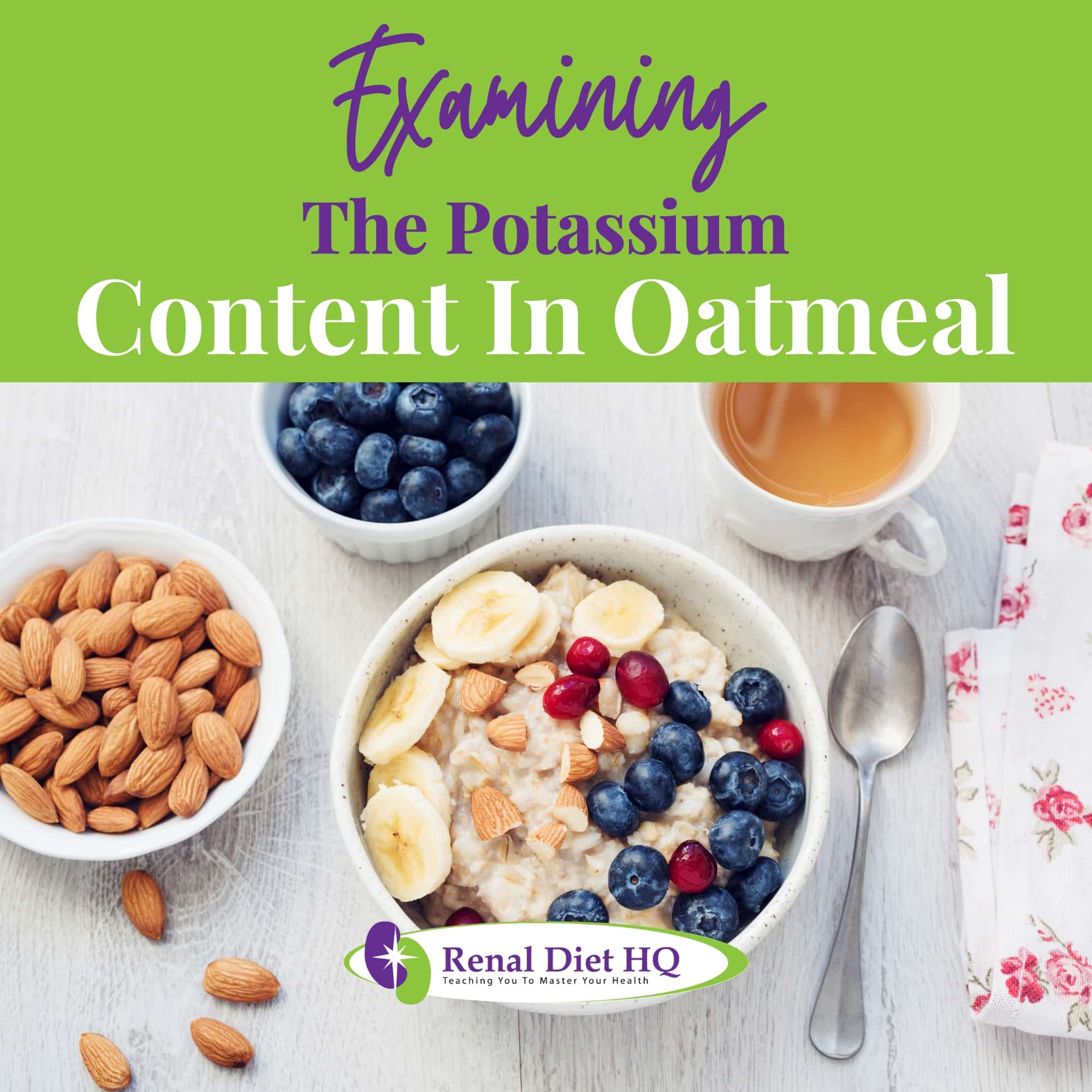
Examining the Potassium Content in Oatmeal
You've learned about the phosphorus in oatmeal, now let's delve into another key mineral, potassium.
Have you ever considered how much potassium is in your bowl of morning oats? It's crucial to monitor your daily potassium intake, and understanding its levels in oatmeal can be a great start.
Potassium Levels in Oatmeal
Be mindful that oatmeal's high potassium content might not be suitable for your renal diet. But don't dismiss it just yet. Oatmeal fiber content is beneficial for digestion and its antioxidant properties can bolster your immune system.
Consider these points:
- Instant oats often have less fiber compared to rolled or steel-cut oats.
- The method of cooking oats can also impact their nutritional value.
- Slow cooked oats tend to retain more nutrients than instant ones.
- Despite the potassium, oatmeal's antioxidants are important for overall health.
- The digestion rate of oats may affect nutrient absorption.
Monitoring Daily Potassium Intake
It's crucial to keep track of your daily potassium intake, especially if you're dealing with any health conditions that might make this mineral harmful. Consuming potassium-rich foods like oatmeal can have both positive and negative effects on your health.
For instance, it helps maintain proper kidney function by balancing fluids in your body. However, too much dietary potassium can lead to hyperkalemia, a condition characterized by muscle weakness and heart problems. So, it's about striking the right balance.
You've got a big role to play in preserving your kidney function and controlling the amount of potassium in your diet. You must be mindful when consuming foods high in this crucial mineral.
The levels of potassium in your diet is very important. Understanding the difference between potassium-rich vegetables and high-potassium foods is so important.
Guidelines for Oatmeal Consumption in Kidney Disease
You're about to delve into the world of oatmeal intake recommendations, especially tailored for those managing kidney disease. It's vital that you understand how to monitor your phosphorus and potassium levels while enjoying this nutritious meal option.
Let's unpack this topic together so you can confidently incorporate oatmeal into your diet in a manner that supports your health.
Oatmeal Intake Recommendations
Considering your renal diet, let's explore how much oatmeal you should be having. Your portioning is key here, don't overdo it. A half-cup of cooked oatmeal for breakfast is a good start.
Here are some tips on oatmeal preparation and variations:
- Soak oats overnight to make them easier to digest.
- Try steel-cut oats for an extra fiber boost.
- Make savory oatmeal by adding veggies and herbs.
As for toppings, avoid high-sodium or high-potassium options like bananas and nuts. Opt instead for blueberries or cinnamon.
Oatmeal frequency? Daily intake works well if it fits into your overall renal diet plan. However, always remember that each person's dietary needs may vary significantly based on their kidney health status.
Monitoring Phosphorus and Potassium
Don't forget to keep a close eye on your phosphorus and potassium levels, as they can significantly impact your health. Proper phosphorus absorption and potassium regulation are key factors in maintaining a balanced diet, especially for those following a dialysis diet.
You'll find renal friendly recipes that adhere to your dietary needs without compromising taste. It's crucial that you're mindful of the ingredients used in each meal.
Regular nutrient tracking is essential to ensure you're giving your body what it needs while managing your health effectively. Remember, knowledge is power when it comes to dealing with dietary restrictions!
Oatmeal Alternatives for Individuals With Chronic Kidney Disease
You're probably wondering, "What can I eat for breakfast that's both kidney-friendly and satisfies my morning hunger?"
Well, it's time to delve into some low-phosphorus cereal options that are not only tasty but also good for your health.
And if you're someone who prefers their breakfast hot or follows a gluten-free diet, there are plenty of steamy alternatives waiting to be explored.
Low-Phosphorus Cereal Options
It's important to note that oatmeal is a low-phosphorus cereal option ideal for a renal diet. When you're comparing cereal brands, it's essential to consider both the nutritional content and your personal dietary needs. A comprehensive iron content analysis can help determine which cereals are best suited for those needing more iron in their diets.
Your breakfast routine's impact on your health is significant. Including high-fiber foods like oatmeal can provide numerous dietary fiber benefits such as aiding digestion and maintaining heart health.
- Organic oatmeal typically contains less pesticides than conventional options.
- Oatmeal offers low phosphorus levels perfect for kidney-friendly diets.
- High-quality brands often provide higher nutrient contents.
- Iron-rich cereals can supplement dietary iron needs.
- The regular inclusion of oatmeal in breakfast routines promotes digestive health.
Gluten-Free Hot Alternatives
Quinoa's a fantastic gluten-free hot cereal alternative that's packed with protein and fiber. As you search for ways to nourish those you care for, consider the quinoa benefits. It's not only tasty but also offers essential nutrients.
Here's a quick comparison of other options:
| Cereal Alternative | Notable Benefit | Ideal For |
|---|---|---|
| Buckwheat Porridge | Rich in antioxidants | Heart Health |
| Amaranth | High in protein | Muscle Building |
| Rice Cereal | Easy to digest | Sensitive Stomachs |
| Millet | Rich in vitamins and minerals | Overall Nutrition |
Buckwheat porridge warms the heart while offering beneficial properties, amaranth fuels muscle growth due to its high protein content. Rice cereal alternatives provide gentleness for sensitive stomachs, and millet breakfast ideas can be an exceptional way to start the day with a nutrient boost!
Frequently Asked Questions
You're asking about how often oatmeal should be included in your meals. It's important to consider your oatmeal preparation, the varieties of oats you choose, and the portions you consume.
With any diet adjustment, especially a renal one, moderation is key. Oatmeal has many benefits but overconsumption can lead to issues. Ideally, incorporate it 2-3 times a week being mindful of portion size and sodium content to protect your kidney health.
You're asking about side effects of oatmeal for kidney disease. Oatmeal's nutritional content, rich in dietary fiber, can aid kidney disease management. However, excessive intake may lead to issues due to the phosphorus in oatmeal.
It's important to balance protein intake as well. So yes, there could be potential side effects if not consumed mindfully.
Always consult with your dietitian to make sure you're eating right for your condition.
While oatmeal boasts numerous benefits like fiber and essential nutrients, it shouldn't replace all your meals. It's crucial for renal health to maintain a balanced diet rich in various nutrients.
Portion control also plays a key role; too much oatmeal can be harmful due to its phosphorus content for kidney patients and those with kidney failure.
Yes, you can add fruits or nuts to your oatmeal. However, fruit selection is crucial due to dietary restrictions. Choose low-potassium fruits like apples or berries.
As for nuts, they're beneficial but watch the portion as they're high in phosphorus. Mix them with your oatmeal toppings sparingly for people with kidney disease.
Also, consider sugar alternatives such as cinnamon to sweeten the taste without affecting your renal diet negatively, so you can hopefully stick with having a healthy kidney(s) when possible.
Always consult a dietitian for personalized advice though! There are lots of potassium fruits to choose from for people with kidney disease and no matter what stages of kidney disease you're struggling with.
If you're struggling to keep your kidneys healthy, then oatmeal on a renal diet may be for you! Oatmeal has the perfect grams of fiber and is actually quite delicious.
Eating Oatmeal On A Renal Diet
So, you've learned that oats can play an important part in a renal diet. They're packed with health benefits, but make sure to monitor your phosphorus and potassium levels.
Remember, everyone's needs are different, so consult with your healthcare provider before making any drastic changes to your diet.
Eating oatmeal on a renal diet is enjoyable, but you also have to pay attention to the average sodium consumption. Amounts of sodium can really derail your diet. Pay attention to nutrition labels, food labels, and everything in between.
Don't forget there are also oatmeal alternatives available for those with chronic kidney disease!





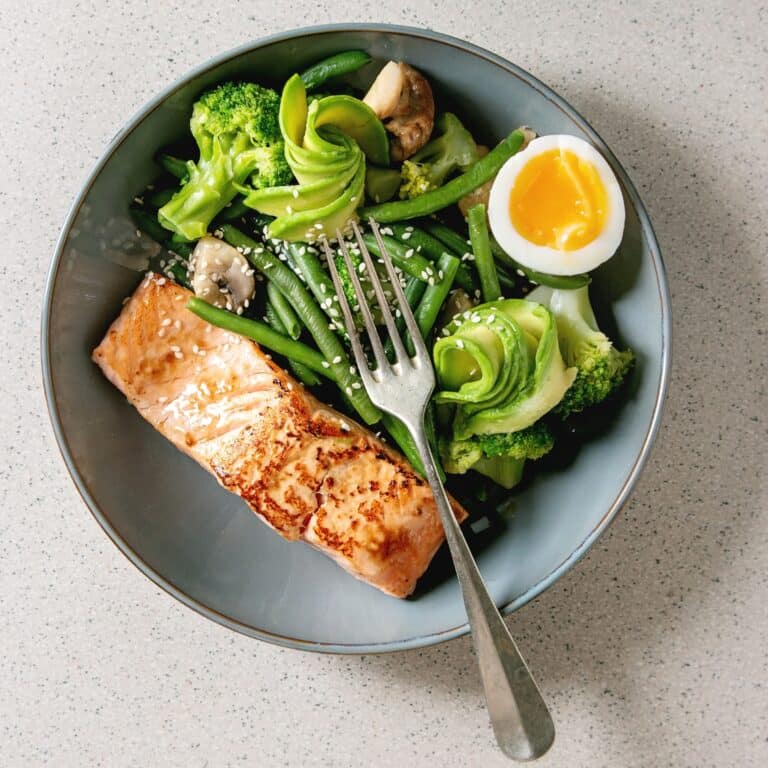
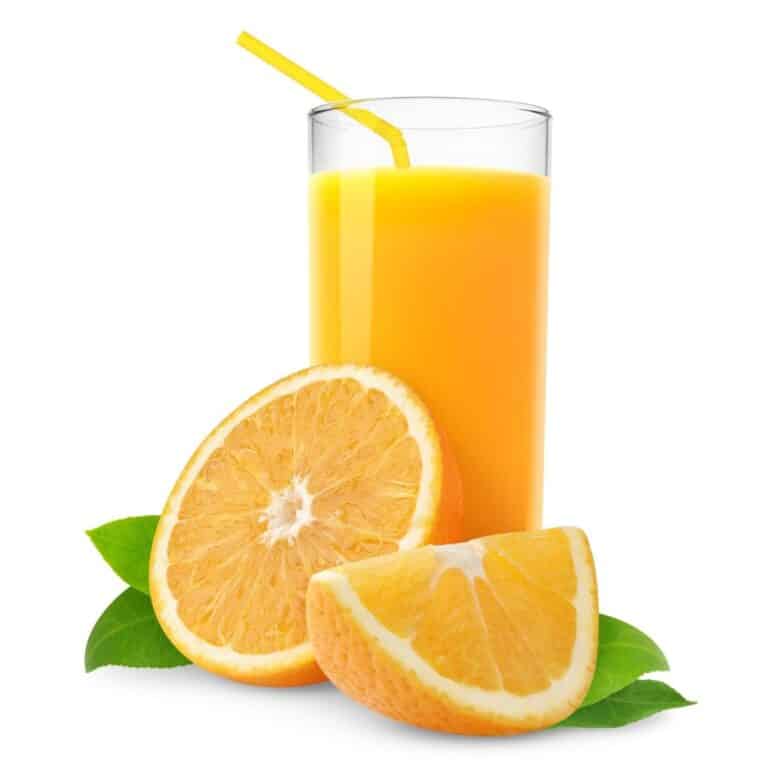

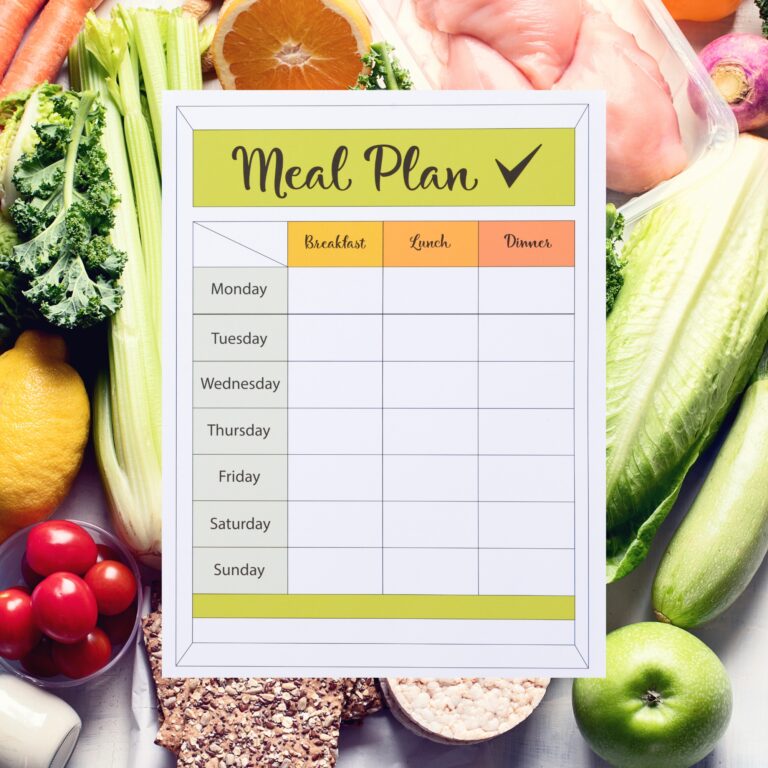
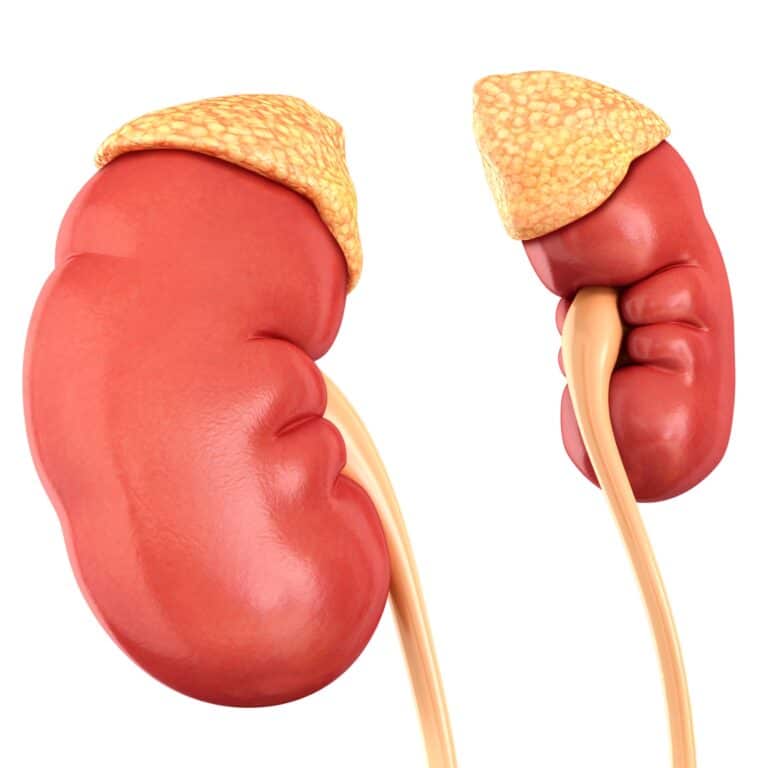
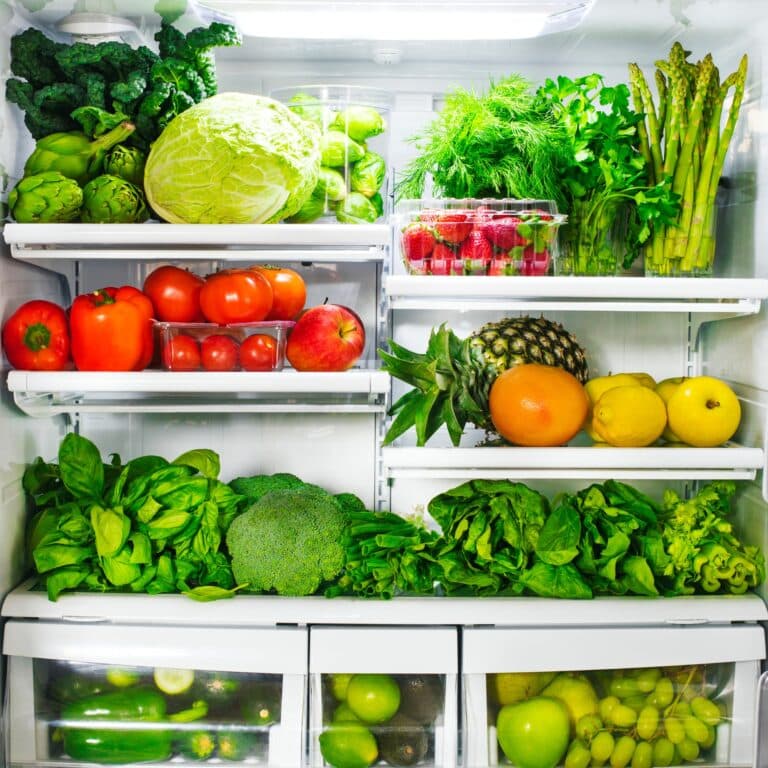




Relaxing read.
I usually have oatmeal for breakfast. The box says a serving is one half cup raw, but I only use one third. I use rice milk and I also put a hand full of blueberries and one fourth of an apple, with Stevia as the sweetener. I have stage 3 CKD. Is this, ok?